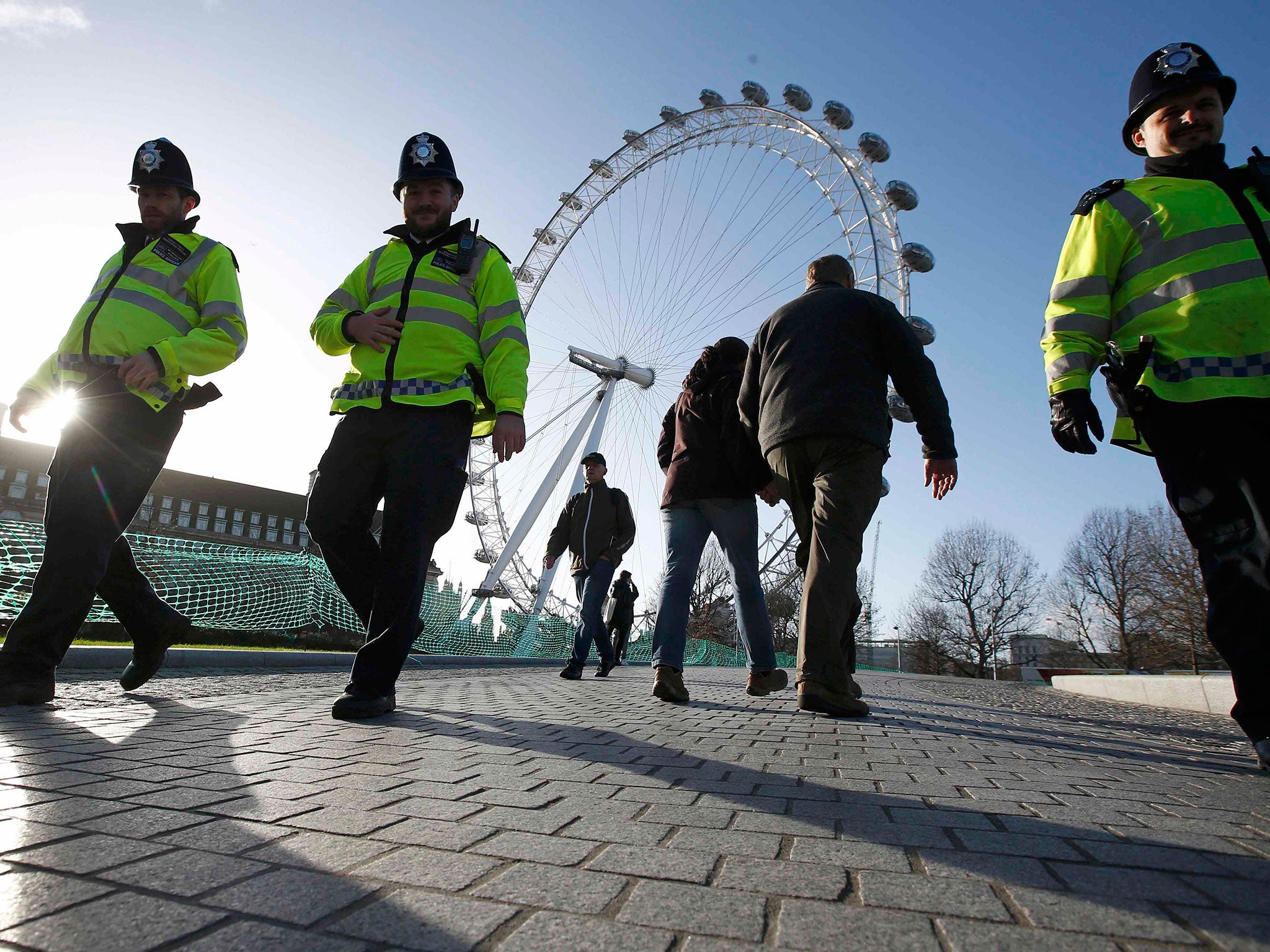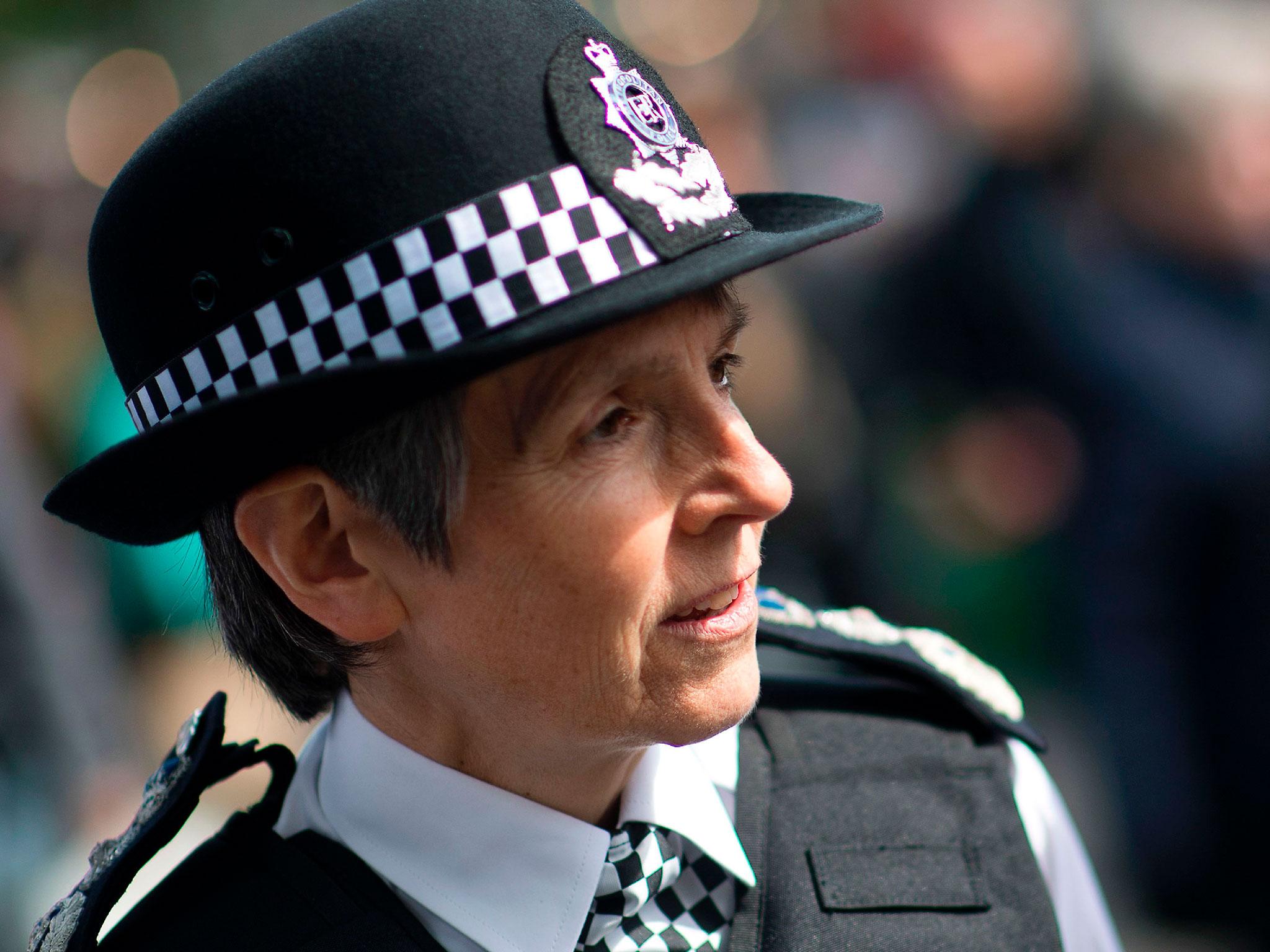Met Police to stop investigating some 'low-level' crimes in response to £400m funding cuts
Officer warns change could have 'horrendous' impact on victims of offences including burglary and car crime

There are fears that thousands of crimes will not be investigated in London under new guidelines announced by the Metropolitan Police in response to funding cuts.
Shoplifting, car crime and criminal damage are among the “lower level” offences that officers may not probe as the force works to save £400m by 2020 – a figure disputed by the Government.
The guidance, officially called the Crime Assessment Policy, was handed to police last month and details when investigations should be stopped or pursued.
Details seen by The Sun suggest that crimes involving a loss of under £50, car crime and some assaults will not be investigated unless a suspect is already identified, and that CCTV should only be analysed for crimes committed in a 20-minute time frame.
Deputy Assistant Commissioner Mark Simmons said the policy aimed to help officers “make judgements about whether it would be proportionate to continue further with an investigation in some lower level crime”.
“We are having to ‘balance the books’ with fewer officers and less money,” he added. “We must prioritise our resources to be able to cope with the demand so our officers can be in the right place at the right time to help the public.”
Mr Simmons said that as well as budget cuts, the Met was coping with a rise in gun crime, knife crime and sexual offences, a 10 per cent increase in calls to 999, terror attacks and wider security threats.
Without giving details, he said Scotland Yard “must save” £400m by 2020, with the current force of 30,300 down from 32,000 and predicted to fall further.
Ken Marsh, chairman of the Metropolitan Police Federation, said “stark decisions” had been forced by Government cuts.
“Up until quite recently, officers dealt with all incidents laid in front of them be it as little as a £5 theft,” he told The Independent.
“But now we’re faced with a new world for us. There will be crimes we won’t attend….people are going to start screaming from the rafters.”
PC Marsh said the Met had to “cut its cloth accordingly” after already making savings of £600m as pressures rise.
But he added that he was “saddened” by the policy and the effect it would have on police officers forced to tell members of the public their crimes cannot be investigated.
“I’m old fashioned and a crime is a crime, how can we pre-judge?” PC Marsh said.
“I’ve never as a police officer put a monetary amount on an incident you’re being asked to deal with.
“These people are human beings and when something happens they may have had no contact whatsoever with police and do not know what to expect – it’s horrendous. Are we doing the thing for public? I don’t think so.”
Mr Simmons stressed that the most serious crimes like murder, kidnap, sexual offences, hate crime and domestic violence would not be affected by the Crime Assessment Policy, and that the lower level offences can still be investigated.

He said burglaries where there are “forensic opportunities” or leads like a number plate would be followed up but added: “With the pressure on our resources it is not practical for our officers to spend a considerable amount of time looking into something where for example, the value of damage or the item stolen is under £50, or the victim is not willing to support a prosecution.”
Mr Simmons argued that the policy was the “right thing to do”, adding: “We need our officers to be focused on serious crime and cases where there is a realistic chance that we will be able to solve it.
“We also want them to be available to respond to emergencies and go to those members of the public that need our help the most.”
The Metropolitan Police said it had conducted analysis that showed the guidance would not lose the ability to solve cases and catch criminals.
“Clearly this is not about letting criminals get away with crime, or not investigating the cases we are solving at the moment, if we thought it was, we simply would not do this,” Mr Simmons added.
The policy was unveiled weeks after the Commissioner warned that terrorism was putting an “unsustainable” strain on Scotland Yard amid a rise in violent crime.
Cressida Dick said the four terror attacks to hit London so far this year had an impact on the entire force.
“In the long run, if we continue with this level of threat – which is what people are predicting – this is not sustainable for my police service,” she added, warning that crimes would be priorities if funding and resources are not increased to cope with the terror threat.
“We will always want to answer emergency calls…but we will have to make some very hard choices.”
Acid attacks and moped robberies are among the crimes on the rise this year, while police also deal with a high proportion of safeguarding activities including child protection, mental health, domestic violence and missing people.
Ms Dick said she was among high-profile policing officials who are “engaged in a conversation about funding with the Government” on funding at the time, although no changes have subsequently been announced.
The Home Office announced an extra £24m of funding for counter-terror policing in the wake of last month’s attempted bombing on a Tube train in Parsons Green.
But the National Police Chiefs' Council said that with the number of officers down to the lowest level since 1985 and crime up 10 per cent in a year, “flat cash settlements” are not enough to deal with the extra pressure.
The Government said it was not reducing the Metropolitan Police’s budget by £400m, claiming the force has had a “broadly flat cash budget” since police spending was protected in the 2015 review.
“There is more money and more officers for each Londoner than anywhere else in the country and this Government will continue to ensure that the Metropolitan Police have the resources they need to cut crime and keep our communities safe,” a spokesperson for the Home Office added.
“Her Majesty’s Inspectorate of Constabulary has been clear that there remain significant efficiencies in policing to be delivered from digitisation, collaboration and improving workforce capability.
“The Government is investing £175m in the Police Transformation Fund this year to help all forces become more productive and manage pressures.”
